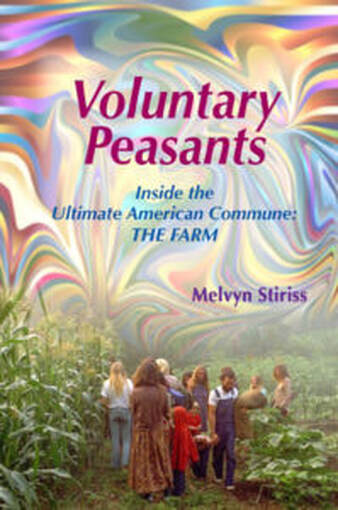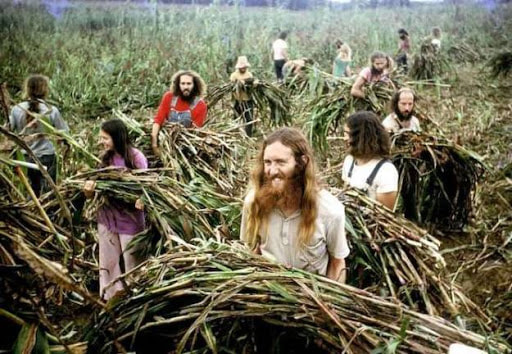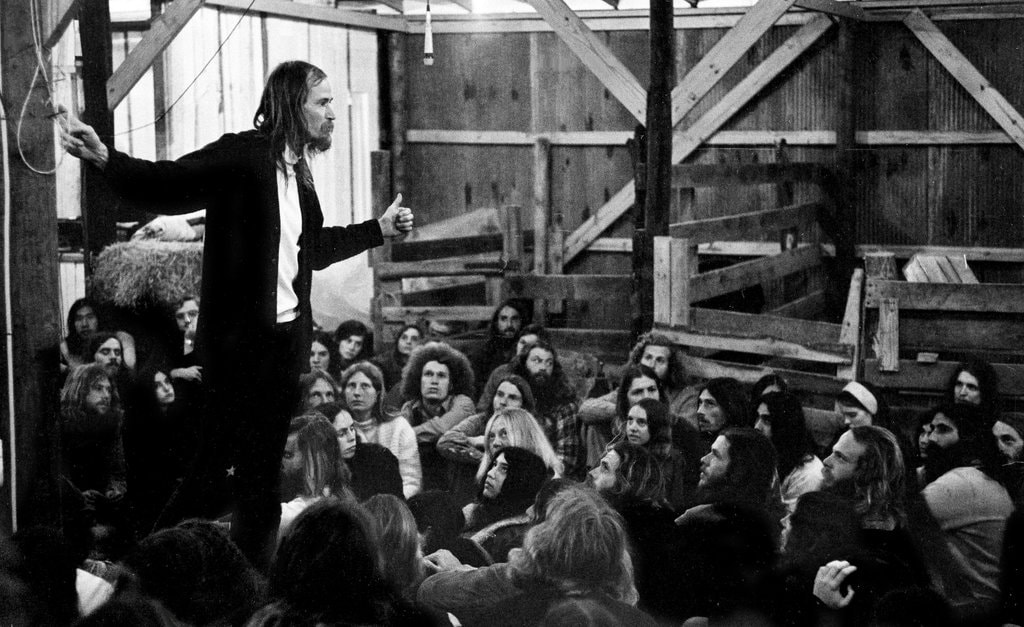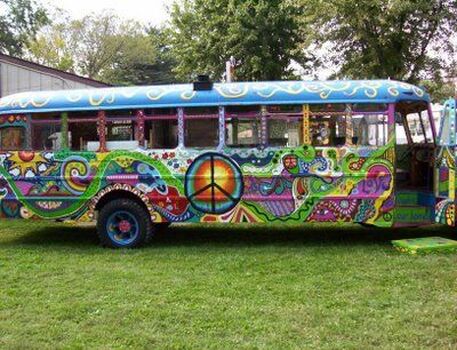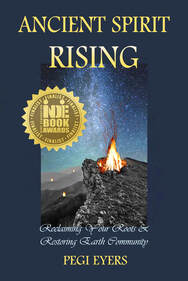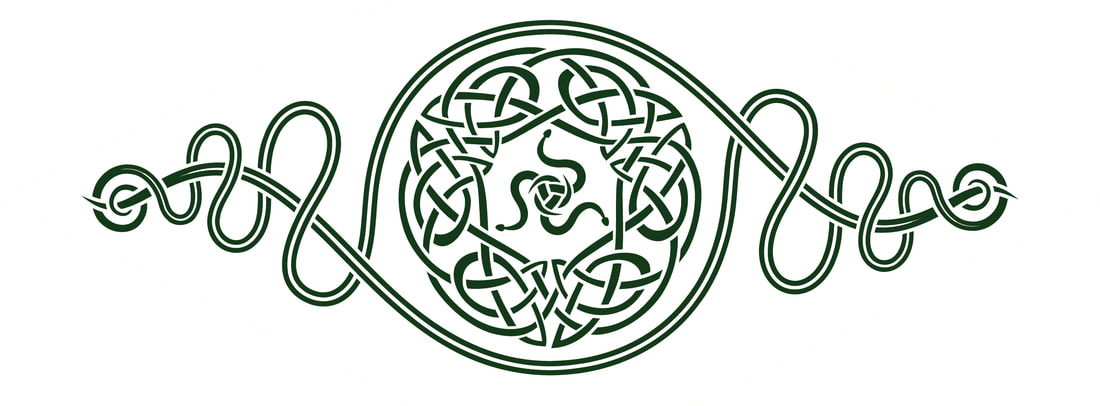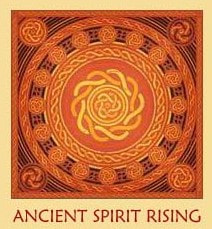REVIEW by Pegi Eyers
I missed the initial flourishing of the hippie phenomena by about a decade, but in my teenage travels I did witness a couple of communes up close, and was certainly part of the early “alternative” philosophies. But I never felt truly welcome in the “higher echelon” hippie spaces, as there seemed to be a strict hierarchy between the “most accomplished” dazzling individuals and the other rankings, with monumental egos at play. I also encountered systemic misogyny, white male privilege and narcissism (although it was hard to articulate at the time). So, it was with great interest that I picked up Voluntary Peasants, to find out what had been really going on in the flower-power Woodstock era. I was vaguely aware of Stephen Gaskin and The Farm, but had no personal connection to anyone who had been part of that “utopia.” Written by one of the founders Melvyn Stiriss, this book is a first-hand account of (let’s face it) cult dynamics, and a romp through the mindset of the “generation that changed the world.”
The main drivers for the earliest manifestation of hippie culture in the Americas seemed to be drugs (“turning on”), wanderlust and meditation. At the same time that young people were rejecting the conservative values of their parents, they seemed lost, and adrift in an sea of possibilities. Finding nothing of value in the dominant society, there was a mass attraction to eastern philosophies, and in a pivotal moment of “karma” (calculated or not?) a deluge of Hindu, Buddhist, Sufi and other Eastern Gurus arrived on the scene. This was also the perfect moment for the “white guru complex” to take hold, and with a combination of paternal leadership, kind counsel, oratorial skills, and practices lifted from various mystery traditions, charismatic hippies like Stephen Gaskin were able to attract devotees and become a “voice of authority.” Gaskin has been called the “first empowerment coach” of our modern era, and decades later, the same need for spiritual “exemplars” continues in diverse spiritualities, self-help and New Age Capitalism.
As San Francisco and Haight-Ashbury became the epicenter of the hippie scene, the new zeitgeist radiated out across the continent, and Stiriss was there from the beginning. He describes the excitement in glowing terms, as hippies and all kinds of alternative folk delved into new experiments in consciousness, new forms of freedom, new expressions in art and music, new sexual mores, and new ways of being in relationship – both at the personal level and in community. Drugs like LSD, mescaline, peyote, mushrooms and cannabis were on hand to expand one’s reality, (or was it to “escape” reality?), touch the “godhead,” become enlightened, be “one with the cosmos” and sink into “group mind.” Taking the testimony of Stiriss as an example (and “bad trips” aside), the hippie worldview was a true path to self-realization, and was filled with joy, awe, creativity, compassion, generosity, kindness and understanding.
The main drivers for the earliest manifestation of hippie culture in the Americas seemed to be drugs (“turning on”), wanderlust and meditation. At the same time that young people were rejecting the conservative values of their parents, they seemed lost, and adrift in an sea of possibilities. Finding nothing of value in the dominant society, there was a mass attraction to eastern philosophies, and in a pivotal moment of “karma” (calculated or not?) a deluge of Hindu, Buddhist, Sufi and other Eastern Gurus arrived on the scene. This was also the perfect moment for the “white guru complex” to take hold, and with a combination of paternal leadership, kind counsel, oratorial skills, and practices lifted from various mystery traditions, charismatic hippies like Stephen Gaskin were able to attract devotees and become a “voice of authority.” Gaskin has been called the “first empowerment coach” of our modern era, and decades later, the same need for spiritual “exemplars” continues in diverse spiritualities, self-help and New Age Capitalism.
As San Francisco and Haight-Ashbury became the epicenter of the hippie scene, the new zeitgeist radiated out across the continent, and Stiriss was there from the beginning. He describes the excitement in glowing terms, as hippies and all kinds of alternative folk delved into new experiments in consciousness, new forms of freedom, new expressions in art and music, new sexual mores, and new ways of being in relationship – both at the personal level and in community. Drugs like LSD, mescaline, peyote, mushrooms and cannabis were on hand to expand one’s reality, (or was it to “escape” reality?), touch the “godhead,” become enlightened, be “one with the cosmos” and sink into “group mind.” Taking the testimony of Stiriss as an example (and “bad trips” aside), the hippie worldview was a true path to self-realization, and was filled with joy, awe, creativity, compassion, generosity, kindness and understanding.
Over two thousand hippies bonded with Gaskin’s vision, and in 1970 a caravan of 100 buses and other motley vehicles set out across the USA to “save the world” and deliver a message of peace, love, and “yoga” consciousness. But when they returned to Haight-Ashbury a “bad vibe” had taken hold, and at Gaskin’s urging the collective went back to Tennessee, to “get back to the land” and experience the joy of taking care of each other in freedom and bliss. The necessities of life were quickly set up, the existing farmland planted, and everyone’s income was pooled to cover real estate, food, shelter, equipment and other costs. According to Voluntary Peasants, the first hippie communes were not linked to communist, anarchist or kibbutz models, but were spontaneously organized i.e. “let’s make it up as we go along.” The members of The Farm were especially innovative in creating housing from available materials, switching to veganism and other holistic practices like natural childbirth, and starting up interchangeable work crews for construction, agriculture, transport, food processing and publishing.
As a precursor to today’s intentional communities, members of The Farm bonded with a common purpose to survive, thrive, and enjoy the many benefits of communal support. A vision statement written by Gaskin, was also a template for the wider “hippie commune” movement.
"Remove yourself from The System, the industrial-military-complex paradigm. Learn to be self reliant. Pool resources, buy some land. Learn to build houses and grow your own food, and create your own peaceful scene, an affordable simple lifestyle.”
New members who rushed to join, such as “draft dodgers, trippers, back-to-the-landers, dropouts and nouveau hippies,” did not necessarily have to accept Gaskin as their "spiritual teacher," but were expected to be “collective, pacifist and vegan.” After years of huge growth, major outreach and massive accomplishments without moving away from the “rustic” ideal, The Farm ran out of money in 1983 and switched from a “collective” to a “co-op” model (aka “The Changeover”). At that point, all the members were then required to pay dues to live on The Farm, earn their own money, and provide for their own food and personal needs. When the commune era dissolved, many ex-hippies went on to become doctors, lawyers and corporate magnates, and then built the boomer generation – the wealthiest demographic of all time.
It's always easy to critique at a distance, but after the passing of 50+ years we can draw some conclusions on The Farm, and the hippie cohort in general. Was it a “whirlwind trip toward enlightenment” as the testimonial for Voluntary Peasants claims? The willingness to embrace alternatives in sustainable technology and holistic health was a monumental change, but in many ways communes missed the big picture. Certainly at play were elements of “good ‘ole American ingenuity,” but it was impossible for the hippies to make a clean break from the dominant order. In retrospect, it's clear that the hippies did not recognize aspects of their lives they most needed to uncolonize, such as materialism, capitalism, greed and hierarchy. Drug use was central to the hippie experience – tune in, turn on, drop out – and yet it was an indulgent and self-centered message. What was all that acid, mescaline, peyote, and mushrooms doing to physical and mental health? And why the extreme peer pressure to take drugs, even for those who were probably unsuited? Instead of moderation, the emphasis on continual drug use created terrible addiction problems well into future decades, and caused frequent overdoses (some fatal), as well as disabilities, trauma, and major PTSD.
As a precursor to today’s intentional communities, members of The Farm bonded with a common purpose to survive, thrive, and enjoy the many benefits of communal support. A vision statement written by Gaskin, was also a template for the wider “hippie commune” movement.
"Remove yourself from The System, the industrial-military-complex paradigm. Learn to be self reliant. Pool resources, buy some land. Learn to build houses and grow your own food, and create your own peaceful scene, an affordable simple lifestyle.”
New members who rushed to join, such as “draft dodgers, trippers, back-to-the-landers, dropouts and nouveau hippies,” did not necessarily have to accept Gaskin as their "spiritual teacher," but were expected to be “collective, pacifist and vegan.” After years of huge growth, major outreach and massive accomplishments without moving away from the “rustic” ideal, The Farm ran out of money in 1983 and switched from a “collective” to a “co-op” model (aka “The Changeover”). At that point, all the members were then required to pay dues to live on The Farm, earn their own money, and provide for their own food and personal needs. When the commune era dissolved, many ex-hippies went on to become doctors, lawyers and corporate magnates, and then built the boomer generation – the wealthiest demographic of all time.
It's always easy to critique at a distance, but after the passing of 50+ years we can draw some conclusions on The Farm, and the hippie cohort in general. Was it a “whirlwind trip toward enlightenment” as the testimonial for Voluntary Peasants claims? The willingness to embrace alternatives in sustainable technology and holistic health was a monumental change, but in many ways communes missed the big picture. Certainly at play were elements of “good ‘ole American ingenuity,” but it was impossible for the hippies to make a clean break from the dominant order. In retrospect, it's clear that the hippies did not recognize aspects of their lives they most needed to uncolonize, such as materialism, capitalism, greed and hierarchy. Drug use was central to the hippie experience – tune in, turn on, drop out – and yet it was an indulgent and self-centered message. What was all that acid, mescaline, peyote, and mushrooms doing to physical and mental health? And why the extreme peer pressure to take drugs, even for those who were probably unsuited? Instead of moderation, the emphasis on continual drug use created terrible addiction problems well into future decades, and caused frequent overdoses (some fatal), as well as disabilities, trauma, and major PTSD.
The hippies were wired to look to a central authority figure who made decisions for people, instead of a mentor giving them the tools to find their own answers. In certain situations this is not necessarily wrong, but it is indicative of just how lost and impressionable young people were in the hippie “daze.” Gaskin was a charismatic figure who had the right things to say at the right time. From the remove of five decades, it’s hard to see the attraction – his appearance is a bit off-putting, and his tone, delivery and content are not all that compelling. But I guess you had to “be there” to “grok his vibes!” From the book we gather that Gaskin’s primary function was to dispense orders and tell people what to do (including abuse and insults) in a kind of “parental” replacement. Much of what he dictated was from a place of control and manipulation, and he exhibited all the qualities of a full-blown narcissist. Just like in a cult, devotees received orders by a maniacal dictator, and in their best interest were forced to comply. On the surface, Stephen was considered a “magical, all-knowing, highly evolved being / an inspiration to thousands who wanted to save the world / the New Age avatar / the next messiah,” and the emergent hippies were in need of this kind of “model.” And yet, it would require scrutiny far beyond this short review, to assess how quickly the bliss of stoned-out “group mind” turned into the cult dynamics of “group think.”
In terms of spiritual content, right from the beginning the hippies were experts at blending various philosophies and wisdom traditions together, and cherry-picking knowledge to find something that “clicked” – only to keep seeking (or “consuming”) more trendy and exciting new practices. Everything was up for grabs, and yet whatever spiritual knowledge was gained, it never seemed to be enough. Gaskin, the teacher of the "True Path," was in competition with, or dismissive of, the various Eastern gurus and swami’s he came into contact with, and also became the “chosen representative” for a couple of First Nations leaders after going to their rallies for a “photo-op.” It may be iniquitous to apply the systemic phenomena of white privilege and cultural appropriation to these early efforts at “new spiritualities,” but elements of exceptionalism and voyeurism were definitely at play. For example, the fact that so many hippies lived in tipis is normalized and completely glossed over. And even though Voluntary Peasants was written in 2018, there is a sprinkling of covert racism and microaggressions throughout the text. Being away from The Farm is referred to as “off the reservation,” the term “jive turkey” is used, and Indigenous people are categorized as “child-like” and “dirt-poor” (instead of being colonized by Europeans), and in dire need of aid to reach the standards of the Global North.
In terms of misogyny, women did seem to make a lot of decisions on The Farm, but men referred to their wives and girlfriends as “my old lady.” And at least on this commune, Gaskin always had the last word! The author’s descriptions are through a male lens, and we have to assume that women had a wide range of roles and interests, but the major focus was on "motherlove" and having lots of babies. What surprised me in Voluntary Peasants, was that beyond the familiar expansion experience in nature and that “everything is connected,” Stiriss did not focus on the natural world, except to take it for granted. There was very little animism in the commune, as the ‘Divine” was an exalted state akin to the monotheistic or mystery traditions (which they data-mined to their heart’s content). Grandiose statements like “we are all one” were made, but they did not seem to recognize the natural world around them as animate and alive, except as a backdrop for heightened states of “stoned” awareness.
The strangest thing I noticed in Voluntary Peasants was the hypocrisy of espousing a break from the conventional “Big Box” cultural conditioning of the sixties and “living free,” and yet they accommodated Christianity, went to work in extractive industries like massive home construction, agriculture, mills, and forest clear-cutting to bring “income” into the collective. They did nothing to challenge the humancentric focus of the dominant society, were in love with cars, technology, “gadgets,” and status, and embraced the accountrements of hippie material culture as they became more and more extravagant. Forming a stand-alone community away from civilization without challenging the status quo was a temporary “high,” as the conditions for techno-capitalism continued unabated. The members of The Farm replicated hierarchy and class inequality, as the majority were supposed to pool their money and be “voluntary peasants,” while the core elite including Gaskin, his “pluri-marriage” and inner circle spent money like crazy on whatever items or experiences they desired, ultimately ruining the financial well-being of the whole.
The biggest set up for failure (and as admitted by The Farm members themselves) was to have a Guru Figure with “monumental arrogance / colossal ego / grandiose narcissism” at the center, instead of following the consensus model. True leaders will always emerge, but function best in egalitarian societies, as “power tends to corrupt and absolute power corrupts absolutely.” Were communes a thought experiment? Was the counterculture an epic fail? Did the hippies sell-out and betray their own values? Did the hippie generation change the world? With an emphasis on using drugs and/or meditation to connect with "the godhead" it may have amounted to hedonism in the end. As we see with trends in contemporary New Age today (a direct inheritance from the hippies), feeling “the oneness” does not translate into good critical thinking skills, resistance to Empire, social justice activism, or even being a good person. Overall, much-needed change is inevitable, and perhaps The Farm and the wider commune movement was not a failure but a short-lived success, as we will never know the full impact of our actions.
In terms of spiritual content, right from the beginning the hippies were experts at blending various philosophies and wisdom traditions together, and cherry-picking knowledge to find something that “clicked” – only to keep seeking (or “consuming”) more trendy and exciting new practices. Everything was up for grabs, and yet whatever spiritual knowledge was gained, it never seemed to be enough. Gaskin, the teacher of the "True Path," was in competition with, or dismissive of, the various Eastern gurus and swami’s he came into contact with, and also became the “chosen representative” for a couple of First Nations leaders after going to their rallies for a “photo-op.” It may be iniquitous to apply the systemic phenomena of white privilege and cultural appropriation to these early efforts at “new spiritualities,” but elements of exceptionalism and voyeurism were definitely at play. For example, the fact that so many hippies lived in tipis is normalized and completely glossed over. And even though Voluntary Peasants was written in 2018, there is a sprinkling of covert racism and microaggressions throughout the text. Being away from The Farm is referred to as “off the reservation,” the term “jive turkey” is used, and Indigenous people are categorized as “child-like” and “dirt-poor” (instead of being colonized by Europeans), and in dire need of aid to reach the standards of the Global North.
In terms of misogyny, women did seem to make a lot of decisions on The Farm, but men referred to their wives and girlfriends as “my old lady.” And at least on this commune, Gaskin always had the last word! The author’s descriptions are through a male lens, and we have to assume that women had a wide range of roles and interests, but the major focus was on "motherlove" and having lots of babies. What surprised me in Voluntary Peasants, was that beyond the familiar expansion experience in nature and that “everything is connected,” Stiriss did not focus on the natural world, except to take it for granted. There was very little animism in the commune, as the ‘Divine” was an exalted state akin to the monotheistic or mystery traditions (which they data-mined to their heart’s content). Grandiose statements like “we are all one” were made, but they did not seem to recognize the natural world around them as animate and alive, except as a backdrop for heightened states of “stoned” awareness.
The strangest thing I noticed in Voluntary Peasants was the hypocrisy of espousing a break from the conventional “Big Box” cultural conditioning of the sixties and “living free,” and yet they accommodated Christianity, went to work in extractive industries like massive home construction, agriculture, mills, and forest clear-cutting to bring “income” into the collective. They did nothing to challenge the humancentric focus of the dominant society, were in love with cars, technology, “gadgets,” and status, and embraced the accountrements of hippie material culture as they became more and more extravagant. Forming a stand-alone community away from civilization without challenging the status quo was a temporary “high,” as the conditions for techno-capitalism continued unabated. The members of The Farm replicated hierarchy and class inequality, as the majority were supposed to pool their money and be “voluntary peasants,” while the core elite including Gaskin, his “pluri-marriage” and inner circle spent money like crazy on whatever items or experiences they desired, ultimately ruining the financial well-being of the whole.
The biggest set up for failure (and as admitted by The Farm members themselves) was to have a Guru Figure with “monumental arrogance / colossal ego / grandiose narcissism” at the center, instead of following the consensus model. True leaders will always emerge, but function best in egalitarian societies, as “power tends to corrupt and absolute power corrupts absolutely.” Were communes a thought experiment? Was the counterculture an epic fail? Did the hippies sell-out and betray their own values? Did the hippie generation change the world? With an emphasis on using drugs and/or meditation to connect with "the godhead" it may have amounted to hedonism in the end. As we see with trends in contemporary New Age today (a direct inheritance from the hippies), feeling “the oneness” does not translate into good critical thinking skills, resistance to Empire, social justice activism, or even being a good person. Overall, much-needed change is inevitable, and perhaps The Farm and the wider commune movement was not a failure but a short-lived success, as we will never know the full impact of our actions.
| Pegi Eyers is the author of "Ancient Spirit Rising: Reclaiming Your Roots & Restoring Earth Community," an award-winning book that explores strategies for intercultural competency, healing our relationships with Turtle Island First Nations, uncolonization, recovering an ecocentric worldview, rewilding, creating a sustainable future and reclaiming peaceful co-existence in Earth Community. Available from Stone Circle Press or Amazon. |
